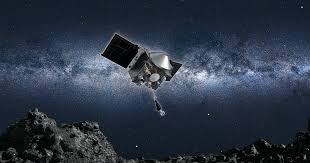By: Jason Xu
On Thursday, August 8, many scientists and engineers in Southern California saw a rare glimpse of a recent photograph of Fornax, which is just a normal constellation of stars only seen in the Southern Hemisphere. The image would be nothing exciting if you, an untrained person, were to look at it, but for them, it had historical meaning. That image represented the essence and last light of NASA’s Near-Earth Object Wide-field Infrared Survey Explorer, or NEOWISE, which is a telescope that is currently orbiting the Earth.
NEOWISE spent more than a decade looking at space to spot and analyze any asteroids and comets that could possibly enter our atmosphere and cause harm. After the telescope had lived its scheduled lifespan, its lens looking at space closed for the final time, and it will become, unfortunately, space debris.
However, the legacy of NEOWISE will live through the thoughts of future generations and past generations of NASA scientists who all contributed to NEOWISE.
“This was the little space telescope that could,” said Amy Mainzar, an astronomer at University of California, Los Angeles and also an enthusiastic investigator of NEOWISE. “We were really lucky to get to do this work.”
Even though the loss marked the end of a significant era in NASA space exploration, the scientists still have much work to do. “For us on the science team, our mission is far from over,” said Dr. Mainzer, another investigator for NEOWISE. They announced that the final data collected from NEOWISE will be released in fall 2024, and scientific papers about NEOWISE’s discoveries are also being drafted.
Dr. Mainzer also said that instead of lamenting about the loss of a sentimental and important spacecraft, she is excited for the new generation of NASA spacecraft, notably the planetary defender, the heir apparent to NEOWISE, the Near-Earth Object Surveyor, which will launch after 2027. It is said to be specially designed for defensive asteroid hunting.
As many people say, this is the end of one era with NASA and space-wise planetary defense, but also the start of another, hopefully brighter one.











